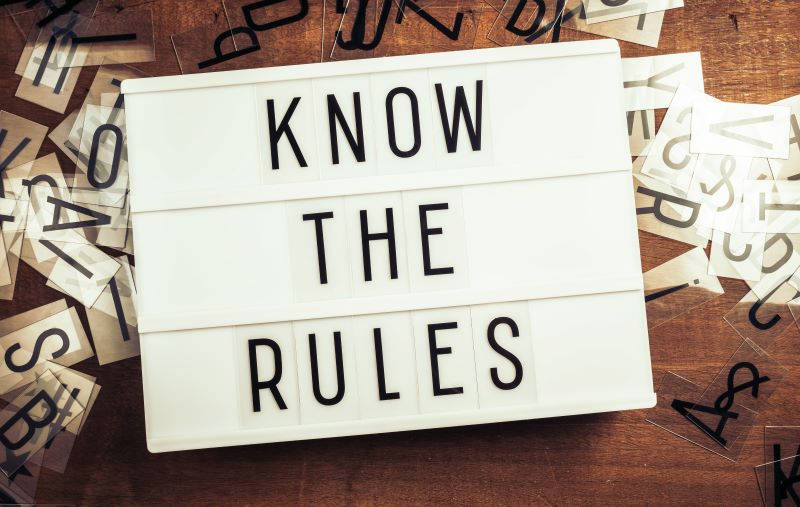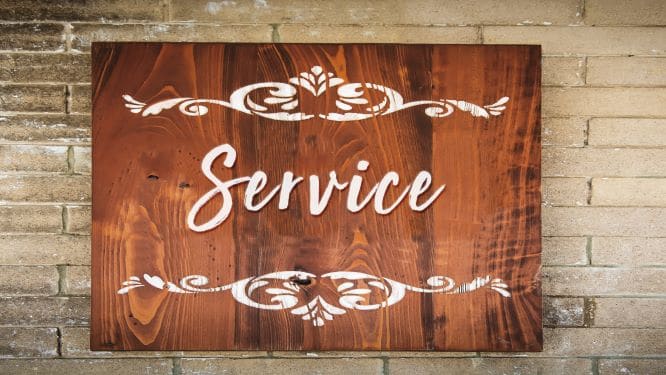A Guide to Service-Disabled Veteran-Owned Small Business Sole Source Contracts

For federal government contractors, certification as a service-disabled veteran-owned small business can be tremendously lucrative. As you’re probably aware, the government issues many solicitations set aside for SDVOSBs – in other words, competitions in which only SDVOSBs are eligible to compete. While set-aside competitions are the best-known benefit of SDVOSB status, the government also awards sole source contracts to SDVOSBs. In other words, a certified SDVOSB is eligible to win certain contracts without any competition!
Sole source contracts can be an important piece of an SDVOSB’s government business strategy, but many contractors are uncertain about the rules governing these contracts. So let’s take a look at the ins and outs of SDVOSB sole source contracts.
FAR or VAAR?
When it comes to SDVOSB contracts, including sole source contracts, the rules differ depending on the procuring agency. Most federal agencies follow the SDVOSB regulations set forth in the Federal Acquisition Regulation, or FAR. If you’re selling to the Department of Defense, Department of Homeland Security, or Department of State, among many other agencies, you’ll want to know the FAR SDVOSB rules.
The U.S. Department of Veterans Affairs (VA) is different. The VA has a special relationship with veteran-owned businesses and has adopted its own regulations addressing SDVOSB contracting. These regulations can be found in the VA’s FAR supplement, known as the VA Acquisition Regulations or VAAR. So, if you want to sell to the VA, these are the SDVOSB regulations to know.
Let’s examine each of these sets of rules, starting with the FAR.
FAR SDVOSB Sole Source Contracts
Under FAR 19.1406, a Contracting Officer can make an SDVOSB sole source award when five conditions are met:
- The Contracting Officer “does not have a reasonable expectation that offers would be received from two or more service-disabled veteran-owned small business concerns.”
- The anticipated award price of the contract, including options, does not exceed $7 million for contracts assigned a North American Industry Classification System (NAICS) code for manufactured products or $4 million for all other NAICS codes.
- The requirement is not currently being performed as part of the 8(a) Program, and the SBA has not accepted the requirement into the 8(a) Program. (Elsewhere, the regulations also state that an SDVOSB sole source is inappropriate where the agency would otherwise fill the requirement under the special rules applicable to Federal Prison Industries or the AbilityOne program).
- The SDVOSB has been determined to be responsible, in accordance with the requirements of FAR Part 9.
- Award can be made at a fair and reasonable price.
Five requirements may sound like a lot, but the first is the most important. After all, the fourth and fifth requirements (responsibility and fair/reasonable pricing, respectively) apply to almost all federal contracts, not just SDVOSB sole source awards. The third requirement merely implements the “once 8(a), always 8(a)” rule, which – again – applies to almost all federal contracts. The dollar caps requirement is unique to the sole source environment but is rather self-explanatory.
Let’s briefly examine the first requirement in greater detail because, typically, this is where the rubber meets the road with respect to SDVOSB sole source contracts under the FAR.
Under FAR 19.1406, SDVOSB sole source contracts are permitted only when the Contracting Officer determines that competition is unlikely. But how does the Contracting Officer make this determination?
Market research.
Before soliciting almost any requirement, the Contracting Officer must conduct market research, a process described in FAR Part 10. The nature and extent of market research vary considerably depending on the type and value of the acquisition and the Contracting Officer’s reasonable discretion; but a Contracting Officer considering an SDVOSB acquisition will almost certainly consult SAM and the SBA’s Dynamic Small Business Search system to determine whether to expect offers from multiple SDVOSBs. The Contracting Officer may also engage in other research, such as soliciting responses through a Request for Information (RFI).
If you’re considering lobbying a Contracting Officer to consider an SDVOSB sole source award, it may be worth your time to do your own market research by examining the same databases. Remember that, to support a competitive SDVOSB solicitation, a Contracting Officer must have a reasonable expectation of receiving two or more offers. If you’re in California and bidding on a job in San Diego, the fact that another SDVOSB located in New York does the same sort of work may not matter. If you can show that the New York company has never won a contract outside the Eastern Time Zone, the Contracting Officer likely cannot reasonably expect that company to make an offer on the San Diego job.
Finally, if you think that the “reasonable expectation” requirement means that agencies operating under the FAR never issue sole source SDVOSB contracts, think again. According to USASpending.gov, the DoD alone awarded nearly 200 such contracts and orders in Fiscal Years 2020 and 2021.
VAAR SDVOSB Sole Source Contracts
If you want to sell to the VA, the rules are different. According to VAAR 819.7007, a VA Contracting Officer can issue an SDVOSB sole source contract when five factors are met:
- The anticipated award price of the contract, including options, will not exceed $5 million.
- The requirement is synopsized in accordance with FAR Part 5.
- The SDVOSB awardee meets the responsibility requirements of FAR Part 9.
- Award can be made at a fair and reasonable price.
- The awardee is verified as an SDVOSB in the VA’s VIP database prior to award.
There are three critical differences between the VAAR and the FAR. First, except for acquisitions bearing manufacturing NAICS codes, the sole source dollar threshold is higher under the VAAR – $5 million versus $4 million. Second, an SDVOSB awardee under the VAAR must be verified in the VA’s database of eligible SDVOSBs; self-certification is not allowed. (While a discussion is beyond the scope of this article, it’s worth noting that government-wide SDVOSB verification will begin to be implemented effective January 1, 2023).
Third, and most importantly, the VAAR does not require that a Contracting Officer conduct a competition whenever there is a reasonable expectation of receiving two or more SDVOSB offers. VAAR 819.7007(b) clarifies: “[a] determination that only one SDVOSB concern is available to meet the requirement is not required.” Instead, VA Contracting Officers have broad discretion to choose between a sole source award and a competitive acquisition when the five factors are met.
Unsurprisingly, the discretion afforded VA Contracting Officers has resulted in many SDVOSB sole source awards. For example, in Fiscal Years 2020 and 2021, per USASpending.gov, the VA awarded nearly 1,400 sole source contracts and orders to SDVOSBs – approximately seven times as many as the DoD awarded under the FAR.
Some Final Thoughts
Whether your SDVOSB sells to FAR agencies, the VA, or both, sole source contracts can be an important piece of the puzzle. The VA has significantly broader discretion to award SDVOSB sole source contracts, so depending on the nature of your business, the VA may be the best place to focus your initial efforts to obtain such awards. That said, don’t ignore the possibility of receiving SDVOSB sole source awards from FAR agencies like the DoD. By demonstrating to the Contracting Officer that another SDVOSB offer is unlikely, you may be able to join the ranks of companies receiving SDVOSB sole source contracts under the FAR, too.


